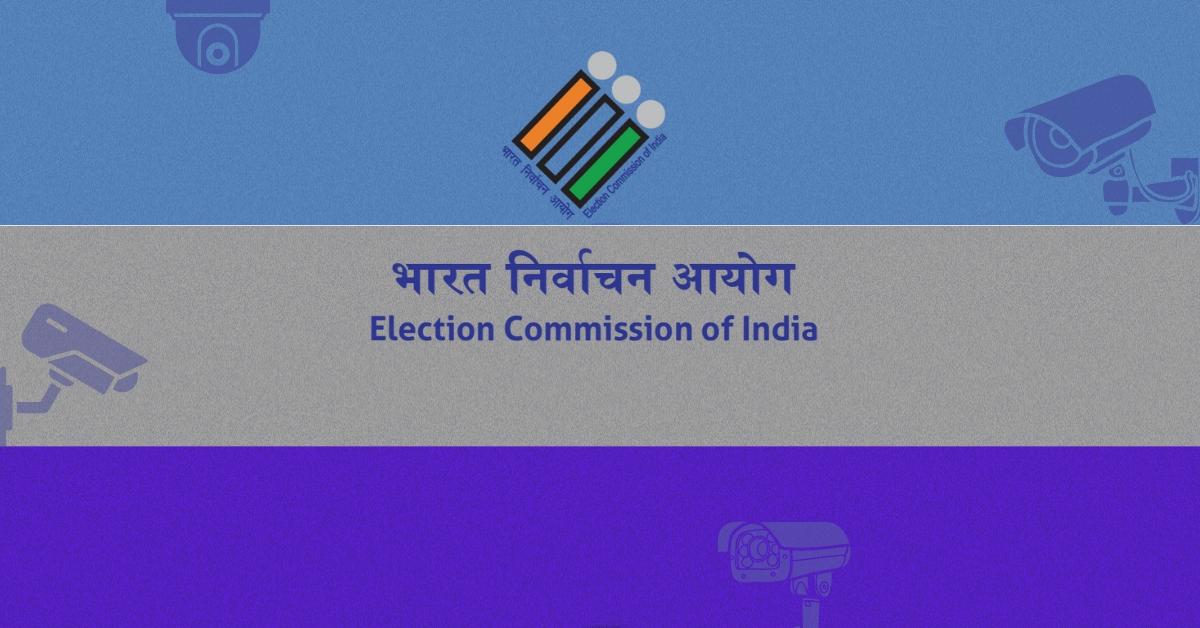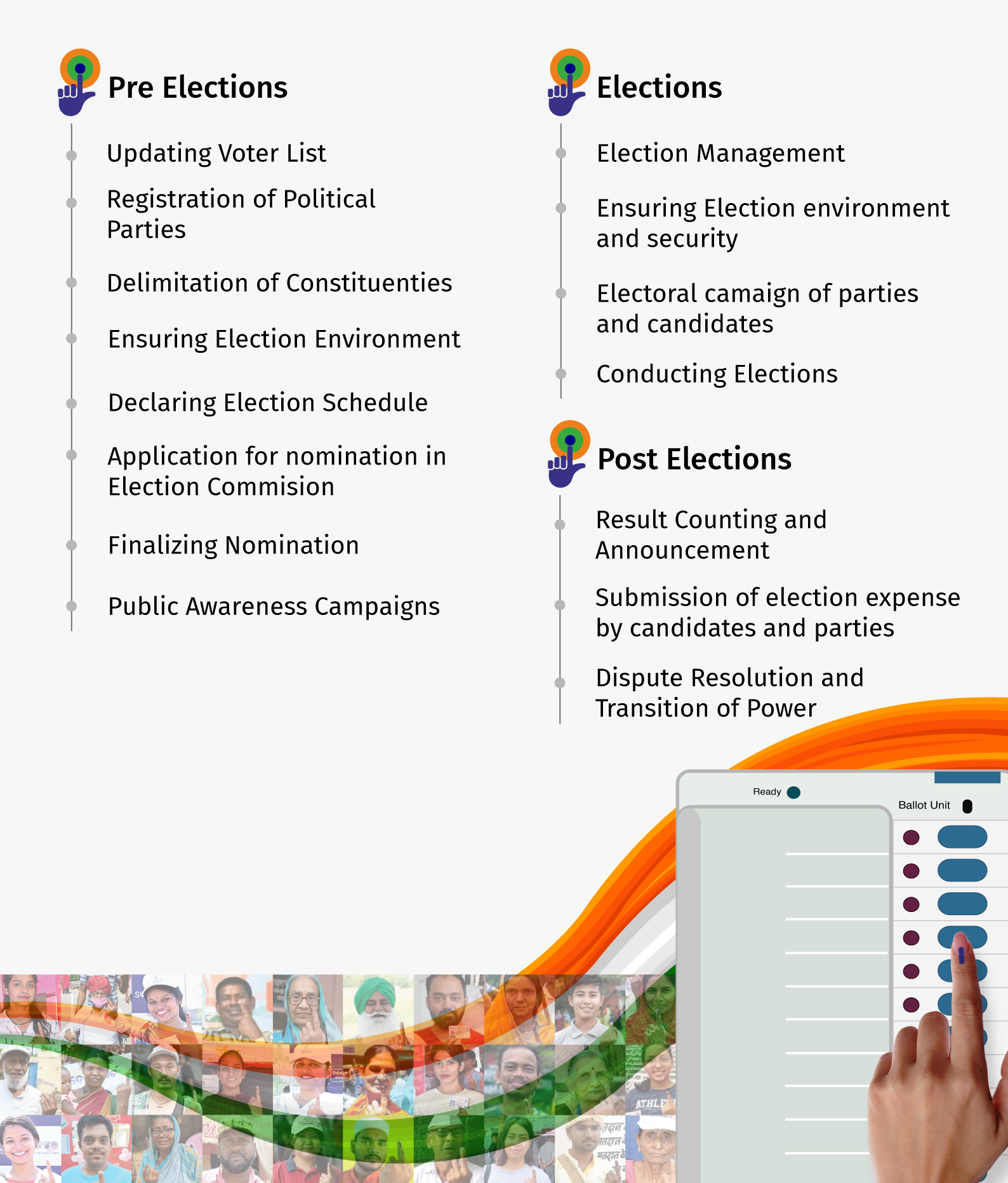Introduction:
Legal Framework:
- The preparation and maintenance of electoral rolls in India are governed primarily by the Representation of the People Act, 1950 (RPA 1950). Under Section 22, the Electoral Registration Officer (ERO) is empowered to correct entries, remove names of deceased voters, or delete names of those who have shifted residence or are otherwise ineligible. This provision balances the need to maintain the accuracy of the rolls with the imperative of due process.
- The Registration of Electors Rules, 1960 further detail the mechanism for inclusion, correction, or deletion of names. Citizens can file applications for enrolment using Form 6, for corrections using Form 8, and for objections to inclusion or requests for deletion through Form 7. The law also mandates periodic revision of rolls, typically before every general election, ensuring that voter lists reflect demographic and mobility changes.
- At the operational level, Booth Level Officers (BLOs) and EROs form the backbone of electoral roll management. Their responsibilities include field verification, scrutiny of applications, and ensuring transparency through notice and hearing processes. The Election Commission of India (ECI), as the supervisory body, lays down uniform procedures and monitors compliance.
Processes of Deletion and Correction:
- The deletion of a voter’s name is not arbitrary; it is bound by specific grounds and procedures. A name can be removed only if:
1. The person has died.
2. The person is no longer ordinarily resident in the constituency.
3. The person is otherwise not entitled to be enrolled, e.g., underage or not a citizen.
- To initiate deletion, any elector of the constituency can file Form 7 with reasons for objection. The form requires the applicant to provide details such as the Electors’ Photo Identity Card (EPIC) number, contact details, and the particulars of the voter whose deletion is sought.
- Crucially, the process does not end with the submission of the form. The ERO is obliged to issue notice to the concerned voter, allow them to present their case, and conduct a field verification through the BLO. Only after this inquiry can a final order for deletion be passed. Thus, the system incorporates procedural safeguards intended to protect voters from wrongful disenfranchisement.
- In recent years, digital initiatives like ERONet (Electoral Roll Management System) and Voter Helpline App have streamlined the process of applying for enrolment, corrections, and deletions. These platforms aim to enhance accessibility and transparency, but they also introduce new challenges, such as verifying the authenticity of online submissions.
Challenges and Concerns:
Despite the robust legal framework, several issues persist in the management of electoral rolls:
The online filing of Form 7, while convenient, has opened avenues for misuse. Allegations in Aland highlight how mass deletion requests may be filed without the knowledge of voters. Though final deletions require ERO verification, such attempts raise questions about loopholes in the authentication process.
2. Awareness Gaps
Many voters remain unaware of their right to contest deletions or the procedural safeguards available to them. This lack of awareness can result in citizens being caught off guard when they find their names missing on polling day.
3. Implementation Loopholes
The effectiveness of safeguards depends on the diligence of local officers. Inadequate verification or failure to serve proper notice undermines the principle of natural justice. In some cases, high workload and limited resources also contribute to procedural lapses.
4. Urban Mobility and Migration
India’s growing urbanisation and internal migration complicate the maintenance of accurate rolls. Individuals often change constituencies without updating their voter details, leading to inflated rolls with duplicates. Conversely, overzealous deletions to address duplication may disenfranchise genuine voters.
5. Technological Risks
While digitisation has improved efficiency, it also raises concerns of data privacy, cyber vulnerabilities, and misuse of linked databases like Aadhaar for voter verification. A balance must be struck between convenience and security.
Broader Implications:
- The integrity of electoral rolls has direct implications for the health of democracy. Wrongful deletions or errors can lead to disenfranchisement, undermining the constitutional right to vote guaranteed under Article 326. Equally, inflated rolls containing duplicates or ineligible names can be exploited for electoral malpractice, distorting the level playing field.
- Beyond the immediate electoral consequences, inaccuracies erode public confidence in the electoral process. When voters doubt whether their names are on the rolls, or when political narratives emerge around mass deletions, the legitimacy of elections itself comes under question. For a country as vast and diverse as India, where voter participation is a measure of democratic vitality, maintaining trust in the electoral system is as crucial as conducting the elections themselves.
Way Forward:
To strengthen the system of electoral roll management, several measures merit consideration:
1. Enhanced Authentication in Online Processes
While Aadhaar linkage to EPIC has been proposed, it must be implemented with strict safeguards to avoid exclusion errors and privacy violations. Alternatives like multi-factor authentication (mobile OTP + EPIC details + offline verification) could reduce misuse.
2. Transparency in Deletion Process
Every deletion must be communicated proactively through SMS, email, and physical notices. Publishing proposed deletions in local media could further ensure transparency.
3. Grievance Redressal Mechanisms
Establishing fast-track grievance systems, both online and offline, would enable voters to contest wrongful deletions before polling day. A helpline dedicated to roll-related complaints could enhance accessibility.
4. Capacity Building of Local Officers
BLOs and EROs should receive regular training in both procedural law and use of digital platforms. Adequate staffing and resources are essential to avoid shortcuts in verification.
5. Voter Awareness Campaigns
The ECI and civil society must invest in spreading awareness about enrolment, corrections, and objections. Citizens should be encouraged to check their names periodically, especially before elections.
6. Independent Audits of Electoral Rolls
Periodic third-party audits of rolls, with citizen participation, could improve accountability and trust. Such audits could identify systemic errors and recommend structural reforms.
Conclusion:
The management of electoral rolls is both a technical and ethical responsibility. On one hand, it requires precise procedures, updated technology, and vigilant supervision; on the other, it demands adherence to democratic values of inclusivity, fairness, and justice. India’s legal framework already provides safeguards, but effective implementation remains the key challenge.








